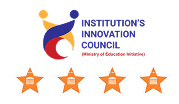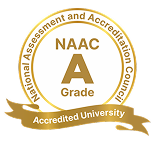OPEN HOUSE 2026 Click here

OPEN HOUSE 2026 Click here

Past Events
-
Navratri Celebration 2025
The Garba Mahotsav was held on the huge football field on the main campus, wh...
-
Aaghaz 2025
The final show of this event was held in Ganpat University Auditoriam Hall.&n...
-
A Journey of Stylzzy - A...
At the end of this one-hour webinar, participants will be able to enhance his/he...
-
The Next Internet Revolut...
“Web3: The Next Inte...
-
Entrepreneurship and Inno...
Event Name: &...
-
Red Hat Day Celebration
Date: 12th February 2024 Time: 12.30 PM – 1:30 PM&n...
-
Navratri Celebration 2024
The Garba Mahotsav was held on the huge football field on the main campus, wh...
-
IBM DAY 2019
Every year, the Institute of Computer Technology organizes the “IBM Day...
-
Navratri Celebration 2023
The Garba Mahotsav was held in the huge Football ground of the main campus wh...
-
Entrepreneurship and Inno...
Ganpat University Institution’s Innova...
-
Aaghaz 2020
Cultural Fest-Aaghaz w...
-
Aaghaz 2k23
The final show of this event was held in Sardar Dham Hall where various cultu...
-
Role of Project Managemen...
The theme of this conference is “Role of Project Management in enhancing...
-
Aaghaz 2022
The final show...
FOSSEE Basic Programming Using Python

Description
This FOSSEE STTP will provide an opportunity for the students with a focused view on “FOSSEE Basics Programming using Python” and also to interact with experts.
Objective of the STTP: The objective of FOSSEE STTP is to deepen participants' knowledge and skills in One-Week Short-Term Training Program (STTP) on Basics Programming using Python, covering basic to advanced topics such as syntax, example and best practices, to enable them to build complex and efficient basic and become proficient Python developers.
|
Date |
2nd to 6th December 2024 |
||||||||||||||||
|
Time |
08:30 To 01:30 A.M.,Indian Standard Time (GMT+5:30 Hours). |
||||||||||||||||
|
Platform |
Offline Lab-12 and Lab-13, First Floor |
||||||||||||||||
|
No. of Registration |
|
||||||||||||||||
Kishan Karmur (MCA Sem-1) Student Coordinators with Dr. C. D. Patel and Ms . Priyansi Patel, Ganpat University - Acharya Motibhai Patel Institute of Computer Studies welcomed the gathering and introduced speakers.
About Speaker:
Prof. Prabhu Ramachandran briefed about One-Week Short-Term Training Program (STTP) on FOSSEE Basics Programming using Python is an intensive and specialized training program designed to elevate participants' Python Programming skills to an advanced level. Geared toward individuals with a solid foundation in Python or prior programming experience, these provide in-depth knowledge on advanced Python concepts like decorators, meta classes, and generators. Participants explore diverse applications. Hands-on lab activities are a core component, enabling attendees to apply their knowledge in real-world scenarios, fostering problem-solving skills.
On Day 1 of the Short-Term Training Program (STTP) on Basic Python Programming, the expert introduced Python as a versatile, high-level programming language known for its simplicity and readability, making it an excellent choice for both beginners and advanced developers. The session covered essential Python preliminaries, such as variables, data types, and basic syntax, providing the foundational knowledge required for writing simple Python programs. Additionally, the expert demonstrated the use of IPython, an interactive shell that enhances the programming experience by offering features like autocompletion and rich media output. The day concluded with an overview of basic plotting techniques using Python libraries, allowing participants to visualize data and gain hands-on experience with graphical representations, a key skill in data analysis and scientific computing.
Day 2:
The expert introduced the fundamental concepts of Python’s control flow, including conditionals (if-else statements) and loops (for and while), which allow for decision-making and repetition in programs. Following this, participants engaged in practice exercises focused on control flow to solidify their understanding through hands-on coding. The session continued with exercises on Python’s data structures, where the expert covered lists, tuples, dictionaries, and sets, providing practical examples and encouraging participants to implement these structures in solving problems. The day wrapped up with basic programming exercises that reinforced the foundational concepts of Python, allowing participants to apply their learning in a structured and interactive way.
Day 3:
The expert introduced the fundamental concepts of Python’s control flow, including conditionals (if-else statements) and loops (for and while), which allow for decision-making and repetition in programs. Following this, participants engaged in practice exercises focused on control flow to solidify their understanding through hands-on coding. The session continued with exercises on Python’s data structures, where the expert covered lists, tuples, dictionaries, and sets, providing practical examples and encouraging participants to implement these structures in solving problems. The day wrapped up with basic programming exercises that reinforced the foundational concepts of Python, allowing participants to apply their learning in a structured and interactive way.
Day 4:
In basic Python programming, understanding key concepts such as modules, exceptions, and file handling is essential for building robust applications. Python Language Modules allow you to organize and reuse code by grouping related functions and variables into separate files, promoting better code structure and modularity. Python Language Exceptions are crucial for error handling, enabling developers to write more resilient programs by catching and managing runtime errors with try-except blocks. Lastly, working with Practice Exercises, Files, and Exceptions helps solidify these concepts, as handling files and exceptions in real-world applications is vital for tasks like reading/writing data and ensuring smooth execution even when things go wrong. Mastering these areas is key to becoming proficient in Python programming.
Day 5:
In basic Python programming, understanding key concepts such as modules, exceptions, and file handling is essential for building robust applications. Python Language Modules allow you to organize and reuse code by grouping related functions and variables into separate files, promoting better code structure and modularity. Python Language Exceptions are crucial for error handling, enabling developers to write more resilient programs by catching and managing runtime errors with try-except blocks. Lastly, working with Practice Exercises, Files, and Exceptions helps solidify these concepts, as handling files and exceptions in real-world applications is vital for tasks like reading/writing data and ensuring smooth execution even when things go wrong. Mastering these areas is key to becoming proficient in Python programming.














The celebration of IBM day 2018 was held during 28...